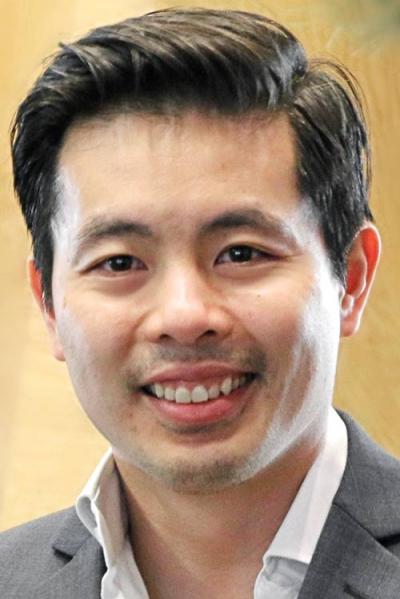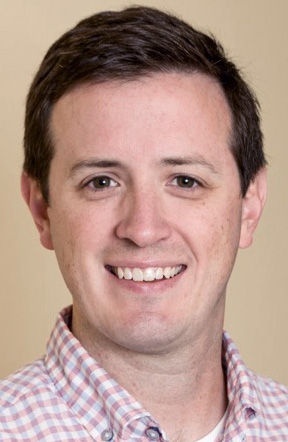

 The worst thing about Brexit wasn't the referendum. It was the fallout. David Cameron decided that the best way to manage a small risk was to take a big one. Finally, over three agonizing years later, the UK looks set to move on. The Internet Society – which has run the .ORG domain since 2002 – was in the same position as Cameron. They became convinced that it was worth dealing with a small risk by taking a huge one.
The worst thing about Brexit wasn't the referendum. It was the fallout. David Cameron decided that the best way to manage a small risk was to take a big one. Finally, over three agonizing years later, the UK looks set to move on. The Internet Society – which has run the .ORG domain since 2002 – was in the same position as Cameron. They became convinced that it was worth dealing with a small risk by taking a huge one.
 One could think that the authors of The Universal Declaration of Human Rights (UDHR) -- adopted in 1948 -- had the Internet in mind when they declared in Article 19: "Everyone has the right to freedom of opinion and expression; this right includes freedom to hold opinions without interference and to seek, receive and impart information and ideas through any media and regardless of frontiers." All human beings are entitled to certain rights, and it makes no difference if they choose to exercise them in a town square or an Internet chatroom.
One could think that the authors of The Universal Declaration of Human Rights (UDHR) -- adopted in 1948 -- had the Internet in mind when they declared in Article 19: "Everyone has the right to freedom of opinion and expression; this right includes freedom to hold opinions without interference and to seek, receive and impart information and ideas through any media and regardless of frontiers." All human beings are entitled to certain rights, and it makes no difference if they choose to exercise them in a town square or an Internet chatroom.
 As the Internet has grown, so too have the abuses that go along with one of the world's most transformative technologies. For all of the positives the Internet brings, negatives like phishing, malware and child exploitation are a reality online. As of December 9, 2019, 48 registrars and registries have signed onto the "Framework to Address Abuse." This initiative was launched last month by a number of domain name registries and registrars, just prior to the ICANN meeting in Montreal.
As the Internet has grown, so too have the abuses that go along with one of the world's most transformative technologies. For all of the positives the Internet brings, negatives like phishing, malware and child exploitation are a reality online. As of December 9, 2019, 48 registrars and registries have signed onto the "Framework to Address Abuse." This initiative was launched last month by a number of domain name registries and registrars, just prior to the ICANN meeting in Montreal.
 Encryption is fundamental to our daily life. Practically everything we do online makes use of encryption is some form. Access to our financial transactions, health records, government services, and exchanged private messages are all protected by strong encryption. Encryption is the process of changing the information in such a way as to make it unreadable by anyone except for those possessing special knowledge (usually referred to as a "key"), which allows them to change the information back to its original, readable form.
Encryption is fundamental to our daily life. Practically everything we do online makes use of encryption is some form. Access to our financial transactions, health records, government services, and exchanged private messages are all protected by strong encryption. Encryption is the process of changing the information in such a way as to make it unreadable by anyone except for those possessing special knowledge (usually referred to as a "key"), which allows them to change the information back to its original, readable form.
 Pew Research Center recently surveyed 4,272 adults and tested their knowledge of basic computer topics. The results showed that there was a lack of general knowledge about a few of the terms that are important for how people use the Internet. For example, the survey showed that only 30% of survey takers knew that website starting with https:// means that the information provided over that site is encrypted. Only 28% of respondents understood the concept of two-factor authentication...
Pew Research Center recently surveyed 4,272 adults and tested their knowledge of basic computer topics. The results showed that there was a lack of general knowledge about a few of the terms that are important for how people use the Internet. For example, the survey showed that only 30% of survey takers knew that website starting with https:// means that the information provided over that site is encrypted. Only 28% of respondents understood the concept of two-factor authentication...
 The stakeholder community needs to get with the program and assert itself now – if it still can. The recent attempts by the Internet Society (ISOC) to wrap itself in the halo of Jon Postel's "original intent" for .org is specious and laughable. As I've previously published, Postel also didn't like how big the top-level domains were getting and suggested, in 1993, that top-level domains should be capped at 10,000 names and that further zone growth should happen at the second- and third-levels (similar to how the UK has .uk and then .com.uk, for example).
The stakeholder community needs to get with the program and assert itself now – if it still can. The recent attempts by the Internet Society (ISOC) to wrap itself in the halo of Jon Postel's "original intent" for .org is specious and laughable. As I've previously published, Postel also didn't like how big the top-level domains were getting and suggested, in 1993, that top-level domains should be capped at 10,000 names and that further zone growth should happen at the second- and third-levels (similar to how the UK has .uk and then .com.uk, for example).
 The last Australian Internet Governance Forum (auIGF) was held in October 2016 before the annual event was cancelled as part of an auDA review. Three years on and the auIGF replacement – NetThing – was held in Sydney on 28 October 2019, though I was surprised to see that this Australian Internet event no longer had an associated .au domain name, instead choosing to go with NetThing.info.
The last Australian Internet Governance Forum (auIGF) was held in October 2016 before the annual event was cancelled as part of an auDA review. Three years on and the auIGF replacement – NetThing – was held in Sydney on 28 October 2019, though I was surprised to see that this Australian Internet event no longer had an associated .au domain name, instead choosing to go with NetThing.info.
 The 2019 UN IGF is right now being held in Berlin and entering the last day. There has been a wide range of exciting discussions. It is a huge step forward that this year's IGF has been able to bring a plethora of topics together under a framework of thinking after the efforts done by the UN Secretary-General António Guterres' High-Level Panel on Digital Cooperation (The Age of Digital Interdependence) and by German scholars' engagement with all the stakeholders...
The 2019 UN IGF is right now being held in Berlin and entering the last day. There has been a wide range of exciting discussions. It is a huge step forward that this year's IGF has been able to bring a plethora of topics together under a framework of thinking after the efforts done by the UN Secretary-General António Guterres' High-Level Panel on Digital Cooperation (The Age of Digital Interdependence) and by German scholars' engagement with all the stakeholders...
 It can be hard to take a side. Especially when you are with a big organization. I know, I used to work for the United Nations and ICANN. Neutrality is a huge part of that work. Your role is not to take a stand; it's to create the space for other people to take stands. To create and protect a neutral platform. That's what we all thought the Internet Society (ISOC) was doing for us by running .ORG.
It can be hard to take a side. Especially when you are with a big organization. I know, I used to work for the United Nations and ICANN. Neutrality is a huge part of that work. Your role is not to take a stand; it's to create the space for other people to take stands. To create and protect a neutral platform. That's what we all thought the Internet Society (ISOC) was doing for us by running .ORG.
 Hi, I'm Richard. I've been around the Internet for a while. I work for Cisco now, and used to lead security for Firefox. I've published a few RFCs and served on the Internet Engineering Steering Group (the board of the IETF). I was a co-founder of Let's Encrypt and I currently serve on its board. I care about the Internet, and I care about nonprofits.
Hi, I'm Richard. I've been around the Internet for a while. I work for Cisco now, and used to lead security for Firefox. I've published a few RFCs and served on the Internet Engineering Steering Group (the board of the IETF). I was a co-founder of Let's Encrypt and I currently serve on its board. I care about the Internet, and I care about nonprofits.